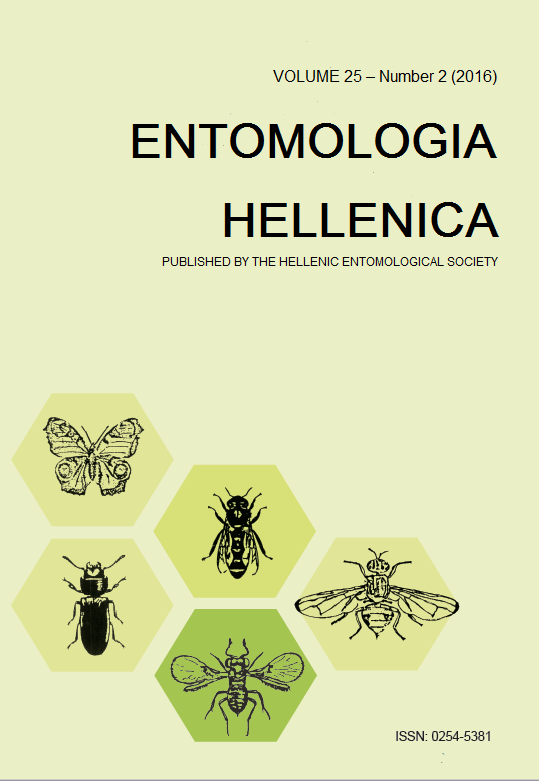Efficacy of a Beauveria bassiana strain, Bacillus thuringiensis and their combination against the tomato leafminer Tuta absoluta

Abstract
A single leaf bioassay was developed to investigate the entomopathogenic efficacy of a Beauveria bassiana strain, Bacillus thuringiensis (Costar®) and their interactions on larval mortality of Tuta absoluta (Meyrick) (Lepidoptera: Gelechiidae). Tomato leaves were removed from the plants and sprayed with manufacturers’ highest field recommended concentrations for tomato crops before or after infesting the leaves with the larvae. Third instar larvae proved the most susceptible, while susceptibility was lower in the second instar larvae. The combined use showed a higher potential indicating a positive synergistic effect. In addition, treated leaves were sprayed directly with concentrations of 0.0, 0.05, 0.10, 0.15 and 0.20 mL/L of B. bassiana. The efficacy was higher for the tested concentration of 0.20 mL/L that is higher than the recommended dose. The present study suggests that those bioinsecticides have a good potential in the control of T. absoluta.
Article Details
- How to Cite
-
Tsoulnara, D., & Port, G. (2016). Efficacy of a Beauveria bassiana strain, Bacillus thuringiensis and their combination against the tomato leafminer Tuta absoluta. ENTOMOLOGIA HELLENICA, 25(2), 23–30. https://doi.org/10.12681/eh.11548
- Issue
- Vol. 25 No. 2 (2016)
- Section
- Articles

This work is licensed under a Creative Commons Attribution-NonCommercial-ShareAlike 4.0 International License.
Authors who publish with this journal agree to the following terms:
Authors retain copyright and grant the journal right of first publication with the work simultaneously licensed under a Creative Commons 4.0 license.
Authors are able to enter into separate, additional contractual arrangements for the non-exclusive distribution of the journal's published version of the work (e.g. post it to an institutional repository or publish it in a book), with an acknowledgement of its initial publication in this journal. Authors are permitted and encouraged to post their work online (preferably in institutional repositories or on their website) prior to and during the submission process, as it can lead to productive exchanges, as well as earlier and greater citation of published work.


